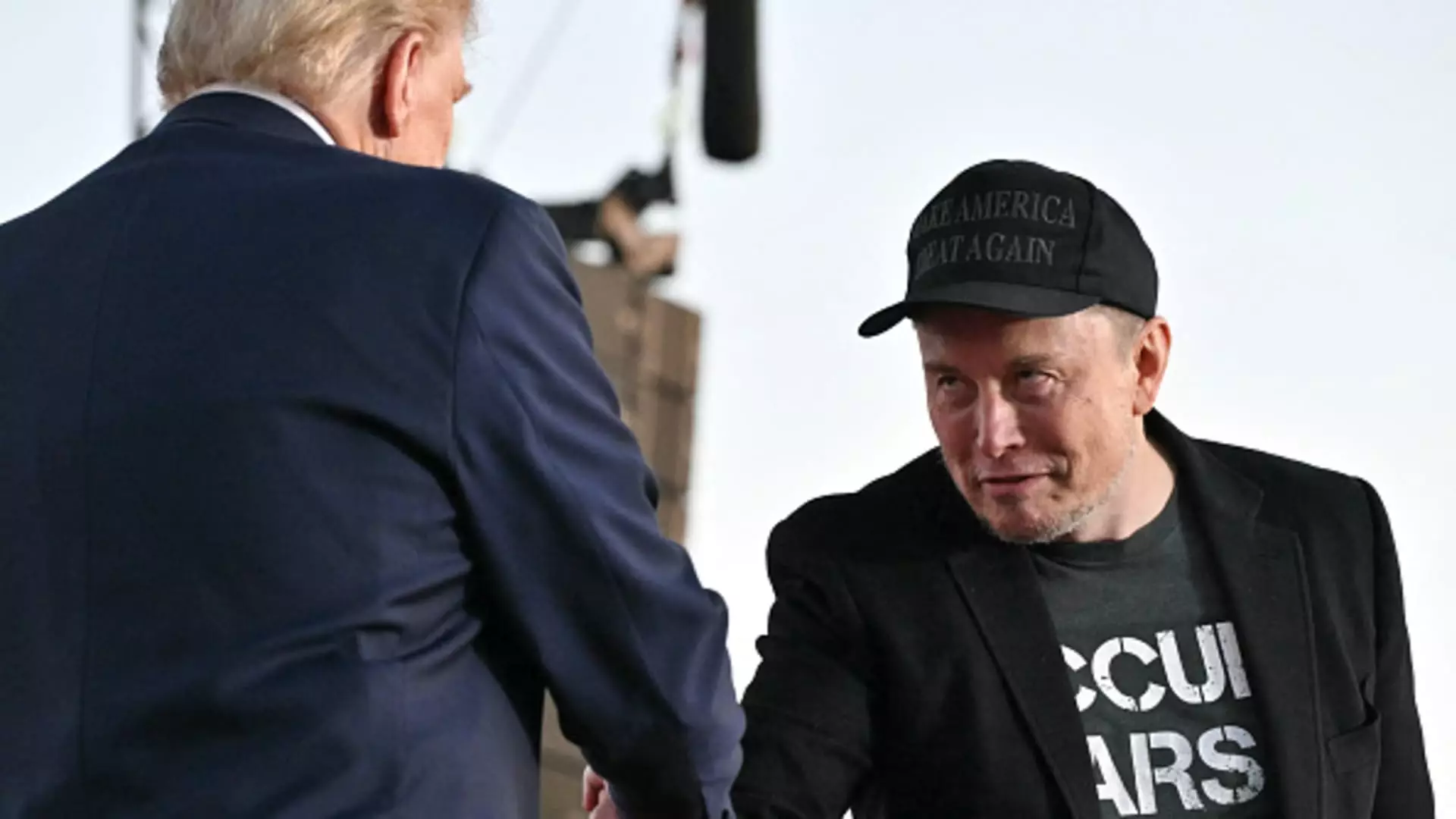As the United States continues to navigate complex economic landscapes, the relationship between the presidency and the Federal Reserve (Fed) is becoming increasingly contentious. Recently, Elon Musk, the renowned CEO of Tesla and SpaceX, vocalized a controversial stance that supports greater presidential influence over Fed policies. His endorsement came in response to Senator Mike Lee’s proposition to have the Fed operate under presidential direction, sparking discussions about the implications of such a shift for the economy and democratic governance.
In a tweet that succinctly conveyed his agreement, Musk utilized the “100” emoji – a digital expression of total support – as a response to Senator Lee’s call for an “End the Fed” initiative. This simple yet powerful gesture from one of the most influential figures in the tech and business sectors raises eyebrows. It suggests a potential alignment of interests among entrepreneurs and political figures who are increasingly advocating for a reshaping of the Fed’s role. The tweet came amidst discussions of how an incoming Trump administration could exert pressure on the Fed, thus altering its traditional independence.
The Role and Independence of the Federal Reserve
The Federal Reserve was designed to operate with autonomy from political forces, allowing it to make decisions that promote economic stability without succumbing to short-term political pressures. This setup helps prevent the manipulation of monetary policy for electoral gains, ensuring that interest rates and other financial regulations are set based on objective economic indicators rather than partisan interests. Fed Chair Jerome Powell’s recent assertion that he would not resign based on presidential demands suggests a potential clash in authority and philosophy regarding who should dictate economic policy.
Historically, former President Trump demonstrated a willingness to challenge norms regarding the independence of the Fed. Throughout his first term, he openly criticized Powell’s decisions, notably disapproving of interest rate hikes that he felt were detrimental to economic growth. His rhetoric indicated an inclination to assert presidential influence over the Fed’s operations—an approach echoed in his remarks during the 2024 presidential campaign. By suggesting the president deserves a say in Fed policies, Trump tapped into a broader narrative that questions the relevance of central bank independence in modern governance.
The implications of granting more control to political leaders over the Federal Reserve could be significant. Should this trend continue, it may lead to erratic monetary policy shifts that prioritize political expediency over long-term economic health. Moreover, it risks undermining the credibility of the Fed, potentially leading to increased market volatility and lack of investor confidence. As discussions around this issue continue to unfold, it’s crucial for policymakers, economists, and the public to engage in rigorous debate about the importance of maintaining a balanced relationship between economic policy and political authority.
As influential figures like Musk and political leaders shape the discussion surrounding the Federal Reserve, the need for careful consideration of the consequences becomes ever more apparent. The integrity of monetary policy must be protected to ensure that the economic health of the nation takes precedence over political ambitions.


Leave a Reply